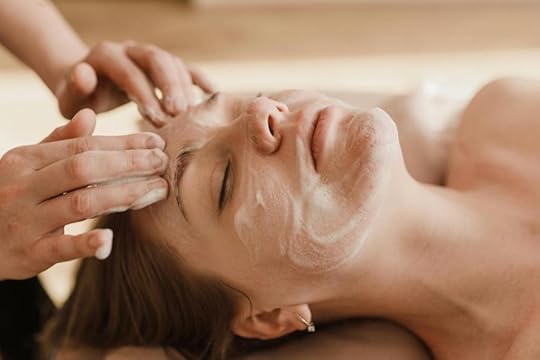7 Must-Have Skills for Aspiring Aesthetic Practitioners

In the rapidly evolving field of aesthetics, practitioners must combine technical expertise with an array of interpersonal skills. Whether you’re aiming to specialize in cosmetic procedures, skin treatments, or non-surgical enhancements, refining your skill set is crucial.
Here are seven essential skills that every aspiring aesthetic practitioner should cultivate to thrive in this dynamic industry.
1. Clinical Knowledge and Technical ProficiencyOne of the cornerstones of a successful career in aesthetics is a comprehensive understanding of clinical practices. This includes not just an in-depth knowledge of procedures, but also an awareness of the anatomy and physiology relevant to treatments. Familiarity with various products, tools, and technologies is equally essential.
Investing time in accredited training for aesthetics professionals can significantly bolster your technical proficiency. Such training not only equips you with the tools you need but enhances your confidence when dealing with clients, ensuring you can address their concerns competently.
2. Strong Communication SkillsIn aesthetic practice, communication goes far beyond just relaying the details of a treatment. It’s about building rapport with clients, listening to their concerns, and setting realistic expectations. Practitioners should be able to explain procedures clearly, using language that clients can easily understand.
Moreover, being a good listener will help you understand what your clients truly desire. This involves interpreting non-verbal cues as well, helping you gauge their comfort levels during consultations and treatments. Communicating professionally and empathetically can significantly enhance client satisfaction and retention.
3. Attention to DetailAesthetic procedures often require a high degree of precision. The difference between a subtly enhanced appearance and an overdone look often lies in the details. Practitioners must meticulously assess skin conditions, understand client expectations, and apply products carefully to achieve optimal results.
Attention to detail extends beyond the treatments themselves to include client management, documentation, and aftercare. Maintaining accurate records not only ensures compliance with regulatory standards but also builds trust with clients.
4. Problem-Solving AbilityAesthetic practitioners frequently encounter unforeseen challenges. Whether it’s a client experiencing unexpected reactions or complications arising during a procedure, the ability to think on your feet is invaluable. You must be prepared to adapt to changing circumstances and find creative solutions to various issues.
This skill also applies to client consultations. Some clients may come in with unrealistic expectations that could lead to dissatisfaction. Being able to navigate these conversations tactfully ensures that both parties are aligned before proceeding with any treatment.
5. Business AcumenWhile clinical skills are undeniably important, having a foundational understanding of the business side of aesthetics cannot be overlooked. From marketing strategies to financial management, a successful practitioner must know how to run a business effectively.
Understanding your target audience and employing effective marketing strategies can help you reach more clients. Familiarise yourself with social media platforms and networking opportunities to foster relationships within the industry.
Additionally, consider the importance of maintaining a budget and tracking expenses to ensure your practice remains sustainable.
6. Empathy and Emotional IntelligenceAesthetic practitioners often work with clients who have insecurities or anxieties related to their appearance. As such, developing empathy and emotional intelligence is critical. You must be able to connect with clients on a personal level and reassure them that their feelings are valid.
Building trust through emotional intelligence can help ease client concerns. By approaching treatments with sensitivity, you foster a positive experience that encourages clients to return for future visits.
7. Continuous LearningThe world of aesthetics is ever-changing, with new techniques, technologies, and research emerging regularly. A commitment to lifelong learning is vital if you want to remain relevant and confident in your practice.
Engaging in continued education, attending workshops, and participating in industry conferences will keep you abreast of the latest developments. Moreover, joining professional organisations can provide invaluable networking opportunities and resources for growth.
Final ThoughtsCultivating the right mix of skills is essential for anyone aiming to excel as an aesthetic practitioner. As you embark on this journey, remember that both technical proficiency and emotional intelligence play significant roles in your success.
By focusing on these seven must-have skills—clinical knowledge, communication, attention to detail, problem-solving, business acumen, empathy, and a commitment to continuous learning—you will be well on your way to building a rewarding career in aesthetics.
In a field where client satisfaction is paramount, honing these abilities will not only benefit your practice but also contribute positively to the lives of your clients. As you develop these skills, keep an eye on accredited training opportunities that can further hone your abilities and expand your understanding of the art and science behind aesthetic treatments.
Start this rewarding journey with a clear vision of your goal, and your paying clients will appreciate the dedication you bring to every treatment and interaction. With commitment and the right skills, you can help others feel their best while building a fulfilling career in aesthetics.
The post 7 Must-Have Skills for Aspiring Aesthetic Practitioners appeared first on Geek Mamas .



